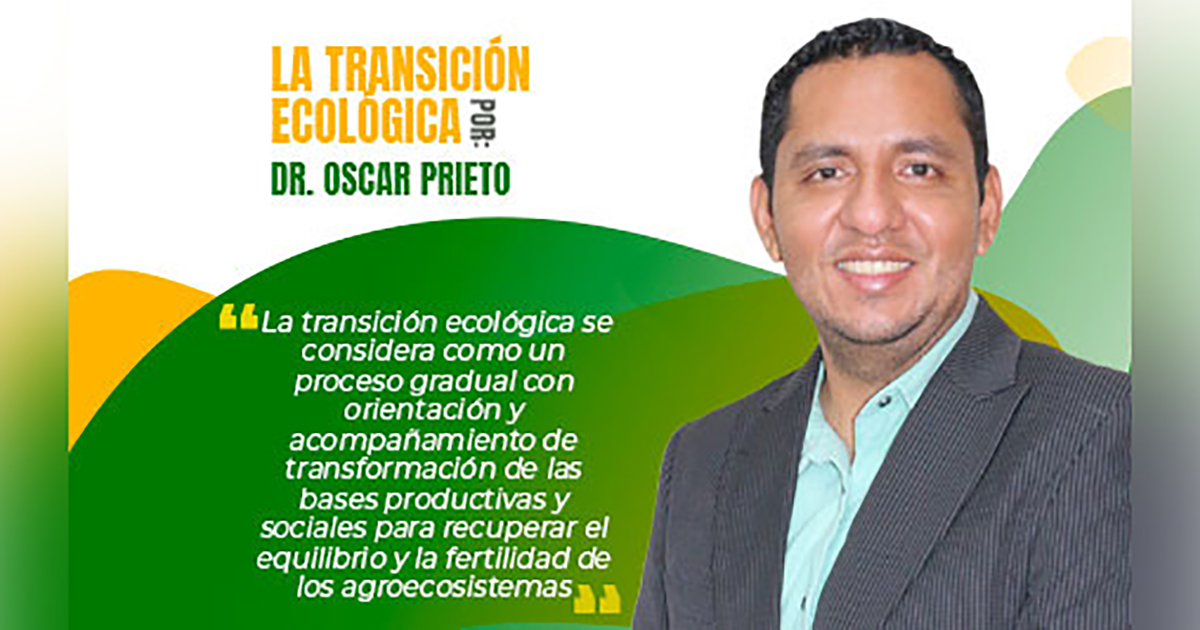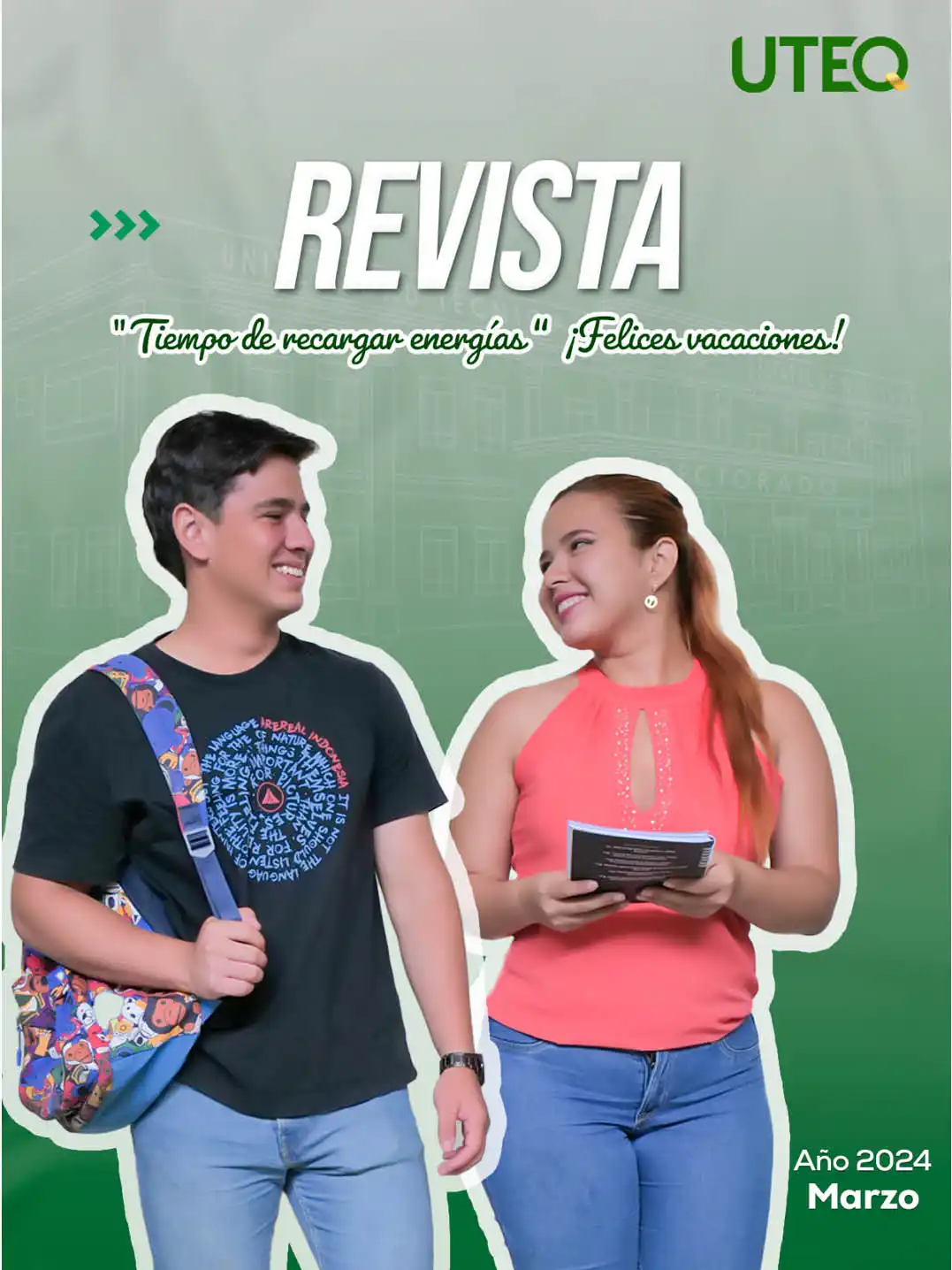The ecological transition
Published on 17 from June from 2021

Role of academia and society.
PhD in Natural Resources
Lecturer in Environmental Engineering
It is now widely known that the conditions for the perpetuation of human life and other species (mainly those of the animal kingdom) are severely threatened, mainly due to the degradation and loss of the planet's ecosystems. In this context, against the backdrop of an increasingly evident climate crisis, several countries and a large part of the world scientific community are concerned about the systemic challenges that humanity urgently needs to face, such as the understanding of feasible transition models for the construction of sustainable societies. In this sense, the former Ministry of Environment of Ecuador included in its name the Ministry of Environment, Water and Ecological Transition of Ecuador, being a striking but very important change in the history of the country, which aims to include a strategic agenda of ecological transition that will act as an ally of environmental, productive, technological and scientific policies to build the foundations of an Ecuador with a more sustainable future.
What is the ecological transition?Conceptually, the ecological transition is considered as a gradual process with orientation and accompaniment of transformation of the productive and social bases to recover the balance and fertility of agro-ecosystems, prioritising the development of local and sustainable agro-food systems, considering social and cultural aspects (dynamics of social cooperation), economic and political aspects (public policies of agro-ecological promotion) and the ecological aspect (management of natural resources).
In short, the national government's aim is to implement public policies and strategies that allow the development of an economic model that is not only limited to reducing the existing environmental impact of various productive activities, but also aims to promote the regenerative processes of natural resources. In other words, as a country, to be economically productive, but at the same time respectful of nature. This includes green innovation in industry, new technologies and the circular economy to reduce environmental impacts.
What is the role of the university community and society in general in the ecological transition?The university community, both teachers and students, must put into practice the common goal of the ecological transition process, which seeks to put into practice the concept that cultivated areas are also ecosystems and that, therefore, ecological processes such as nutrient cycling, cooperative relationships, mutualism, facilitation, predation, ecological succession, germination, competition, reproduction, flowering, pollination, migration, growth, establishment and dispersal of seeds and fruits occur, as they do in native ecosystems such as the Amazon rainforest, for example. Thus, by understanding these complex processes and relationships between living things, agro-ecosystems can be managed to produce better, with less negative impacts on the environment, greater ecological balance, sustainability and less consumption of external inputs.
For farmers, producing in an agroecologically based system aims to promote ecological interactions and synergisms between biological components present in the environment, increasing soil fertility, productivity and crop protection. By choosing to initiate the ecological transition, farmers demonstrate their concern for their own health, that of the environment and that of those who consume their products, for a more sustainable agriculture that benefits all.
For consumers, organic transition products represent access to healthier food with higher nutritional value, produced with technologies that seek to optimise the use of natural and socio-economic resources, value cultural traditions and offer transparency at all stages of production. Those who consume these foods contribute to the valorisation and strengthening of family farming and the production of cleaner food. Access to ecological housing and renewable energy to increase the quality of life, without exceeding the carrying capacity of ecosystems.

